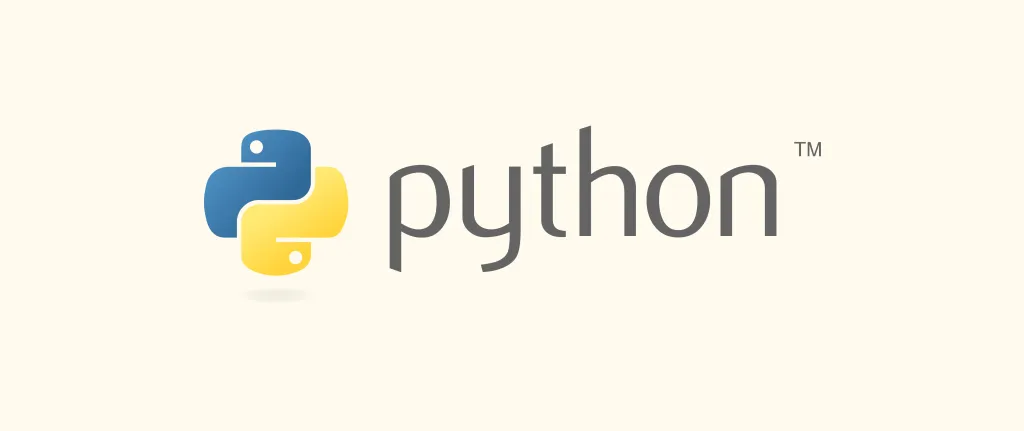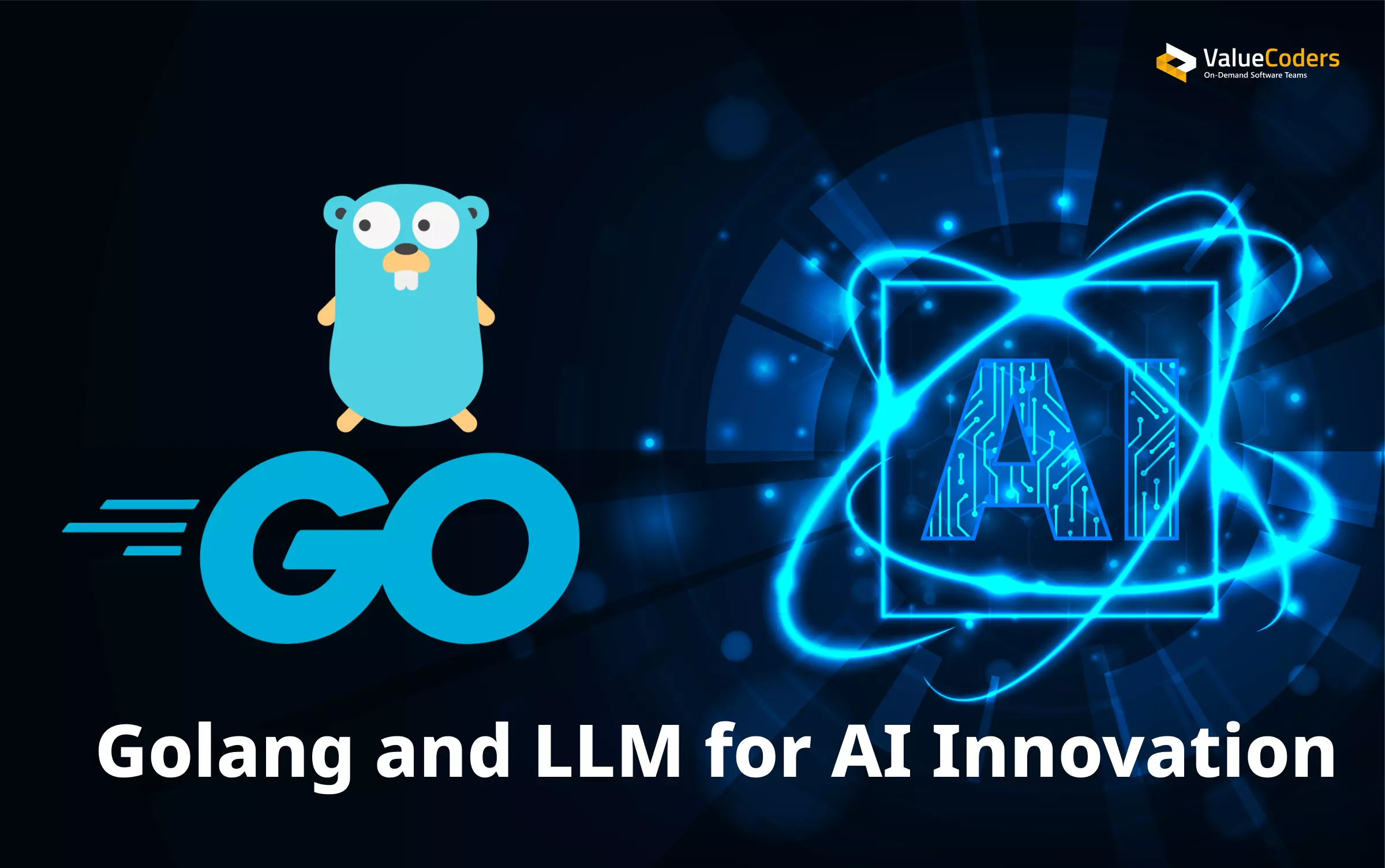In today’s tech-driven landscape, businesses are racing to harness Artificial Intelligence (AI) power to elevate their operations.
AI development company promises automation, efficiency, and data-driven decision-making that surpasses human capabilities. The question is, how can your company effectively integrate AI into its systems and services?
To embark on this AI journey, you need proficient software engineers armed with the best programming languages for AI development. These languages are the foundation upon which your AI dreams can become a reality.
This blog will explore the top programming languages for AI app development and the key players in AI programming. AI programming is more than just code; it’s about empowering your business with the tools to drive innovation, improve processes, and enhance user experiences.
Join us as we uncover the best languages for AI models, the best coding languages for Artificial Intelligence, and how these choices can shape the AI-powered future of your AI development services.
Let’s unravel the world of AI programming languages and equip your developers with the necessary knowledge to bring your AI integration dreams to life.
#1 Python: The Cornerstone of AI Development
Python, despite its pre-AI origins, reigns as the foremost choice among AI programming languages. It boasts unparalleled popularity in Artificial Intelligence, particularly in Machine Learning, a crucial subdomain of AI. Why is Python the go-to language for AI developers? Here are the key reasons:
Data Analysis Powerhouse: Python’s origins as a potent data analysis tool make it an ideal choice for Artificial Intelligence services company. Its prowess in handling big data has solidified its position within the AI landscape.
AI-Specific Frameworks: Python’s charm extends to the presence of AI-specific frameworks. The standout among these is TensorFlow, an open-source library crafted exclusively for machine learning development. It excels in training and deploying deep neural networks.
Additional AI-centric frameworks include:
- Scikit-learn: A versatile tool for training machine learning models.
- PyTorch: Favored for visual and natural language processing tasks.
- Keras: A code interface simplifying complex mathematical computations.
- Theano: A library designed for defining, optimizing, and evaluating mathematical expressions.
Ease of Learning and Use: Python is renowned for its user-friendliness. It is one of the easiest languages to learn and work with, making it an excellent choice for seasoned developers and AI newcomers.
In the ever-evolving world of AI programming, Python remains a steadfast companion, empowering developers to create cutting-edge AI solutions and contributing to the success of AI development services.
#2 Lisp: Pioneering AI Through Time
Lisp, a programming language with a rich history dating back to the 1960s, has left an indelible mark on the world of artificial intelligence. While it was initially conceived as a practical mathematical notation, Lisp swiftly evolved to become a cornerstone in AI development.
Here’s why Lisp remains a compelling choice for AI projects:
- Rapid Prototyping: Lisp’s capacity for rapid prototyping enables developers to iterate and experiment swiftly, a crucial asset in AI research and development.
- Dynamic Object Creation: Its dynamic nature allows the creation of objects on the fly, adapting seamlessly to the evolving needs of AI systems.
- Mandatory Garbage Collection: Automatic memory management via garbage collection ensures efficient resource usage, a vital factor in AI applications.
- Data Structures as Programs: Lisp’s unique capability to execute data structures as programs is a game-changer, enabling complex AI algorithms.
- Programs as Data: In Lisp, programs can be treated as data, fostering dynamic and flexible AI systems.
- Recursion for Control: Unlike traditional languages, Lisp employs recursion as a control structure, which aligns well with many AI algorithms and problem-solving approaches.
- Symbolic Processing: Lisp excels at symbolic information processing, central to AI tasks like natural language understanding and theorem proving.
- Read-Eval-Print-Loop (REPL): The REPL feature streamlines interactive programming, an essential requirement in AI research and experimentation.
Lisp’s historical association with John McCarthy, a towering figure in the AI landscape, makes Lisp even more remarkable. His influence has left a lasting imprint on Lisp and its role in AI.
Despite being the second oldest programming language still in use, Lisp continues to shape the future of artificial intelligence, making it a valuable asset for AI development services.
Explore how ValueCoders' AI development services can transform your brand and accelerate growth.
#3 Java: Powering AI in Mobile App Development
Java is pivotal in AI programming languages, particularly in mobile app development. With the increasing integration of AI in mobile applications, Java has emerged as a natural choice.
Here’s why Java is indispensable in the AI landscape:
Mobile App Dominance: Java’s significance in mobile app development aligns seamlessly with the growing reliance on AI in mobile applications, making it a vital language in this domain
AI-Specific Libraries: Java offers a range of AI-specific libraries and frameworks, including:
- Deep Java Library: Crafted by Amazon, it empowers developers with deep learning capabilities.
- Kubeflow: Streamlines the deployment and management of Machine Learning stacks on Kubernetes, enhancing AI scalability.
- OpenNLP: A formidable Machine Learning tool for processing natural language, fostering advancements in NLP-based AI.
- Java Machine Learning Library: A treasure trove of Machine Learning algorithms catering to diverse AI requirements.
- Neuroph: Enabling the design of neural networks, a critical component in AI model development
- Debugging Simplified: Java’s streamlined debugging capabilities expedite the development process, ensuring robust and reliable AI applications.
Graphical Data Presentation: Java’s user-friendly syntax facilitates the presentation of data in a graphical format, a valuable asset in AI research and data visualization.
WORA and Object-Oriented Patterns: The ‘Write Once, Run Anywhere’ (WORA) principle and Java’s adherence to Object-Oriented Programming patterns enhance code reusability and maintainability.
Java’s intersection with AI programming creates a powerful synergy, amplifying the capabilities of AI in the mobile app landscape. It is a testament to its versatility that Java remains a force to be reckoned with in AI development services
Also Read: Revolutionizing The Drive: How Generative AI Is Shaping Automotive
#4 C++: A Time-Tested Powerhouse in AI Development
C++, a programming language with a storied history, remains a formidable contender in AI. Despite the emergence of newer languages, C++ continues to hold its ground.
Here’s why it’s a heavyweight in AI programming:
Unrivaled Flexibility: C++ boasts exceptional flexibility, making it a go-to choice for resource-intensive AI applications. Its low-level nature provides granular control, which is vital for optimizing AI models in production.
Foundation for Libraries: Many core deep learning and machine learning libraries are written in C++, underpinning its importance to the AI ecosystem.
Efficiency and Performance: C++ converts user code into highly efficient and performant machine-readable code, ensuring AI systems run at peak performance
AI Capabilities Unleashed: C++ plays a pivotal role in various AI applications, including:
- AI speech recognition implementations.
- Utilizing deep learning libraries such as MapReduce, mlpack, and MongoDB.
- Leveraging C++ Builder, a rapid application development environment, for efficient AI development.
C++ may not always be the first choice to hire AI engineers, but its enduring presence and prowess in resource-intensive AI domains make it an indispensable tool. Its efficiency and performance capabilities ensure that it continues to shape the AI landscape, offering invaluable contributions to AI development services.
ValueCoders' AI development services can drive your business to new heights.
#5 R: Harnessing Data Power for AI
While R may not be the best language for AI, it excels in handling vast datasets, making it a contender in AI, mainly when scale is critical.
R distinguishes itself with key features that lend themselves to Artificial Intelligence:
- Data Crunching Expertise: R’s forte lies in crunching massive volumes of data, offering a competitive edge, especially when dealing with extensive datasets.
- Functional Programming: With built-in functional programming capabilities, R simplifies complex AI operations, enhancing development.
- Vectorial Computation: R’s prowess in vectorial computation further bolsters its suitability for AI tasks that involve mathematical operations on large datasets.
- Object-Oriented Nature: R embraces an object-oriented paradigm, promoting structured and efficient code for AI applications
R’s relevance in AI language is further reinforced by specialized packages tailored for AI endeavors, including:
- gmodels: Equipped with a suite of tools for model fitting, this package streamlines the AI development process.
- TM (Text Mining): A framework designed for text mining applications, a crucial domain within AI for extracting insights from unstructured text data.
- RODBC: An ODBC interface facilitating connectivity and data management, a fundamental aspect of AI development.
- OneR: This package enables the implementation of the One Rule Machine Learning classification algorithm, contributing to the diversity of AI approaches.
While not the primary choice for AI consulting services, R’s unique capabilities and specialized packages make it a valuable addition to the AI programming toolbox. Its data handling and analysis strength empowers AI development services, mainly when dealing with substantial datasets and data-centric AI tasks.
#6 Julia: A Newcomer Revolutionizing AI Development
Julia, a relative newcomer in programming languages, has swiftly become a game-changer, particularly in AI. Created with a laser focus on high-performance computing for scientific and technical applications, Julia offers several features perfectly suited for AI programming.
Here’s why Julia is making waves in AI development:
- Common Numeric Data Types: Julia simplifies numeric data handling, a fundamental requirement for AI operations.
- Arbitrary Precision Values: The ability to work with random precision values ensures accurate and reliable AI computations.
- Robust Mathematical Functions: Julia’s extensive mathematical functions empower AI developers with versatile mathematical tools.
- Tuples, Dictionaries, and Code Introspection: These built-in data structures and code inspection capabilities enhance the development of AI algorithms and applications.
- Built-in Package Manager: Julia streamlines package management, making accessing AI-specific libraries and tools easy.
- Dynamic Type System: A dynamic type system fosters flexibility in AI programming, accommodating changing requirements.
- Parallel and Distributed Computing: Julia’s capacity to work with parallel and distributed computing ensures that AI projects can scale seamlessly.
- Macros and Metaprogramming: Julia’s metaprogramming capabilities open the door to advanced AI techniques and optimizations.
- Multiple Dispatches: Julia’s support for multiple dispatches enables efficient and flexible function overloading, a boon for AI developers.
- Support for C Functions: Julia’s compatibility with C functions further expands its capabilities for interfacing with other AI tools and libraries.
Julia’s integration with key AI frameworks, such as TensorFlow.jl, MLBase.jl, and MXNet.jl underscores its relevance in AI development. As a rising star, Julia empowers AI development services with a powerful, performance-driven toolset, setting the stage for innovation and breakthroughs in artificial intelligence.
Discover how ValueCoders can customize AI solutions to meet your business needs.
#7 Haskell: A Powerful Player in AI Programming
Haskell, a functional and statically typed language, is an exciting choice for AI programming due to its unique features and capabilities.
Here’s why Haskell is gaining traction in the AI landscape:
- Explicit Algorithm Description: Haskell empowers developers to express algorithms clearly and concisely, a crucial aspect of AI programming.
- Type Safety: Haskell offers robust type safety, ensuring code reliability and minimizing errors in AI applications.
- Multicore Parallelism: Seamless support for multicore parallelism enhances performance, making Haskell a potent choice for AI development.
- Lazy Evaluation: Haskell’s lazy evaluation capabilities allow for the definition of infinite data structures, a valuable asset in AI programming.
- HLearn Library: Haskell boasts the HLearn library, encompassing a range of machine learning algorithm implementations, making it ideal for machine learning projects.
#8 Prolog: Mastering Logic for AI
Prolog, short for “programming in logic,” excels in AI thanks to its ease of pattern matching and list handling, making it an invaluable asset in AI programming.
Here’s why Prolog is a standout choice:
- Declarative Nature: Prolog enables programmers to declare rules and facts when writing AI programs, simplifying development.
- Intelligent Database Retrieval: Prolog’s search tools allow it to execute programs efficiently, mainly when problem-solving is a priority.
- Natural Language Processing: Prolog’s capabilities extend to natural language processing, facilitating AI applications in language understanding and generation.
- User-Friendly Systems: Prolog offers systems that are easy to use, making them accessible for AI developers at various skill levels.
- Tree-Based Data Structuring: Prolog’s strength lies in its tree-based data structuring, which is ideal for knowledge representation and problem-solving
Also Read: Why Should Banks Opt For AI Technology
#9 Scala: Streamlining AI Development
Scala, known for its user-friendly nature and reliability, has become a favored language for trusted AI development companies. Its suitability extends beyond ease of use, with specific strengths that cater to the demands of AI programming:
- Machine Learning Expertise: Scala is a robust choice for building machine learning algorithms, facilitating the creation of AI models that can interpret and act upon data intelligently.
- Large Dataset Handling: AI often involves processing vast datasets. Scala is well-equipped to handle this task, making it a compelling choice for gleaning insights from substantial data.
- Content Management: Managing complex content is a breeze in Scala, a vital capability in AI projects that deal with diverse data sources and structures.
- Smile Library: Scala seamlessly integrates with the Smile library, a data science powerhouse that offers algorithms for classification and various AI actions.
- Abundance of Frameworks and Libraries: Scala boasts a rich ecosystem of frameworks and libraries, including BigDL and Breeze, providing developers with a wealth of resources to streamline AI development.
Scala’s versatility and array of AI-oriented features make it an ideal language for AI developers, simplifying the creation of machine learning models and handling extensive datasets. It’s a key player in the world of AI programming and AI development services.
Programming Languages Unsuitable for AI
While many programming languages are well-suited for AI, there are some that need to be improved in this domain. One notable example of a programming language typically not used for AI is Perl. Here’s why:
Scripting Language: Perl is primarily a scripting language, which is not well-aligned with the computational demands and complexity often encountered in AI development.
In the world of AI programming, languages like Perl are overshadowed by more capable and robust options that offer the performance and capabilities needed for AI development.
Let ValueCoders guide you through the AI app development journey.
Unlock the Potential of AI with the Right Language
Incorporating Artificial Intelligence into your company’s toolkit is a strategic move that can supercharge your growth.
The choice of the right programming language is pivotal in this journey. With a proficient adaptive AI development company and the appropriate language, the possibilities for AI are limitless.
- Choose Wisely: Selecting the best programming language for AI is the first step to success.
- No Limits with AI: AI has the potential to revolutionize your business processes, boost efficiency, and drive innovation.
- We’re Here to Help: At ValueCoders, we offer expert AI development services to empower your company’s growth journey.
Take the leap into the world of AI with ValueCoders, and let us be your partner to harness AI’s full potential for your business.
Your future is limitless with AI.















